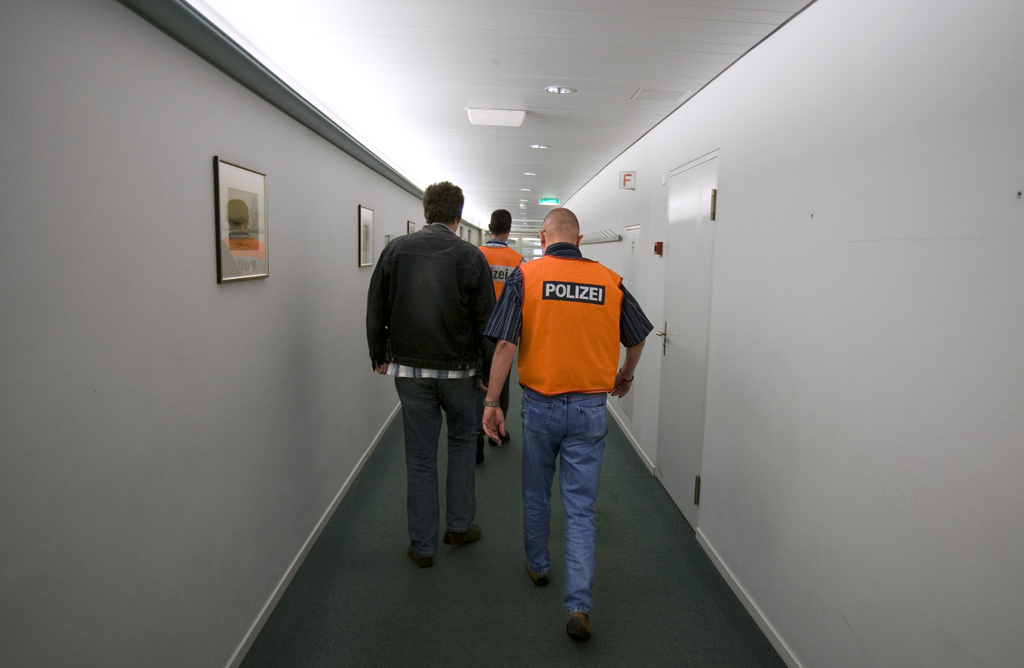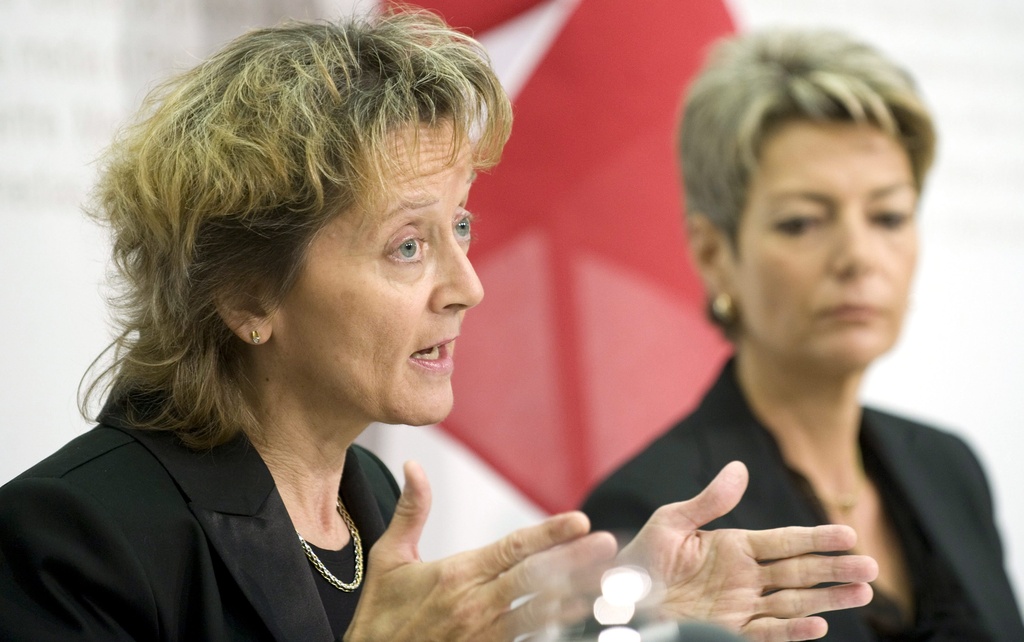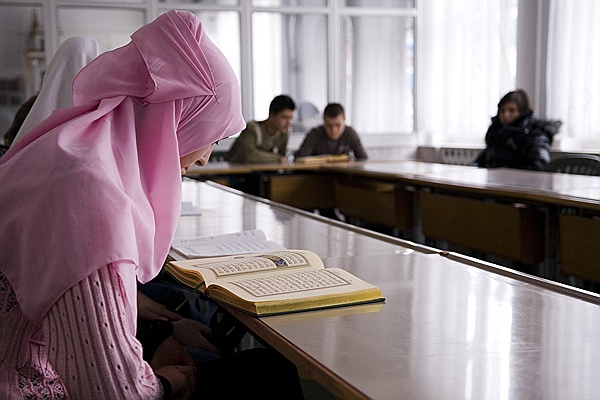Showdown on criminal foreigners brings no answers

A public debate in Geneva over proposals to deport criminal foreigners – to be voted on at the end of the month – has shown how entrenched opinions are on both sides.
Senior representatives of the initiative by the rightwing Swiss People’s Party; Christoph Blocher, and of parliament’s counter-proposal, Fulvio Pelli, were preaching to a 450-strong audience of the converted at Geneva University on Tuesday.
Strangely enough, there was no-one taking part in the panel standing for those who reject both projects, notably the political centre-left.
“Why did the university allow such a debate between two evils?”, a member of the public complained.
It was clear to the observer that the event, organised by the local chapter of the People’s Party, had failed to win over the entire audience. And when former Justice Minister Blocher entered the hall he was met by applause as well as by boos from the audience.
“I reckon about 250 people cheered him and another 200 hissed at him,” commented the president of the Geneva youth section of the People’s Party.
The evening began with a 15-minute introductory speech by the controversial People’s Party strongman. The native German-speaker apologised for his rough French.
To which voices from the audience called out, presumably with a touch of humour: “foreigner”, “deport him”.
Crime rate
Blocher launched his address with a reminder that foreigners are over-represented among criminals. They make up 54 per cent of those convicted of causing grievous bodily harm and 62 per cent of those found guilty of robbery.
This in spite of the fact that non-Swiss only account for 22 per cent of the resident population.
“So, what now?”, asked Blocher. He is convinced the short and simple answer can only be to expel the criminals. “Prisons do not stop crimes. The only way to go about is to force them to leave the country. This is why we launched our initiative.”
The alternative option, approved by a majority in parliament, was nothing but an attempt to undermine the People’s Party initiative. “Politicians have admitted that they agree in principle with the People’s Party. But if a politician says ‘in principle’ he is really against,” joked Blocher.
Inefficient
His opponent, centre-right Radical Party President Pelli, countered that it is already possible under current law to deport criminals.
He argued that the counter-proposal takes seriously the concerns of the more than 200,000 people who signed the initiative because it foresees a tightening of the law.
Pelli criticised the rightwing initiative as “neither accurate nor efficient”. It also went against the legal principle of proportionality. “It is not admissible to sentence and deport people without taking into account the individual circumstances,” he said.
“Imagine the case of an immigrant family from Italy living in Switzerland for 15 years. Now let’s assume their 19-year-old son was caught with drugs and was convicted.
“Should this teenager really be expelled from Switzerland?,” he wondered out loud.
Pelli says the initiative has another flaw as it seeks automatic deportation – a policy incompatible with international accords agreed by Switzerland.

More
People’s initiative
Vague answers
Both Pelli and Blocher largely limited themselves to reiterating the positions of their parties – adding hardly any new elements to the list of arguments for or against. Their answers to questions from the floor were vague.
Someone in the audience wanted to know more about the international accords Switzerland would be in contravention of if the initiative was accepted by voters on November 28. There was no answer from either of the senior figures on the podium.
Instead Blocher highlighted Denmark, which deported 1,500 criminal foreigners last year, and France which expelled gypsy travellers who “have not even committed a crime”. He argued there are no major problems in either of these cases.
For his part Pelli referred to experts on international law and again pointed out that the initiative does not respect the legal “principle of proportionality”.
Observers noted that the two politicians – both of them trained lawyers with a PhD incidentally – agree at least on one thing: there is a wide field for legal experts to debate…
No luck either for the person who would like to know from Blocher and Pelli what Switzerland would do with foreign criminals who cannot be deported because their countries of origin refuse to take them back.
Once again the two politicians appeared to be stuck for a clear and unambiguous answer.
By the end it was clear the debate had done little more than confirm the positions of both sides, with no side winning the argument. A disappointment perhaps for some, but what could be expected of an event which pitted unconditional admirers of the People’ Party strongman against his uncompromising opponents?
But optimists have another chance: A second panel is planned in Zurich later this week.
Voters have the final say on November 28 on the initiative of the rightwing People Party and an alternative proposal by parliament.
The initiative calls for the automatic deportation of foreigners convicted of serious crimes such as murder, rape, other serious sexual offences, violence such as armed robbery, drug trafficking, human trafficking, and breaking and entering. Welfare fraud is also included.
The parliamentary counter-proposal is a compromise and calls for the deportation of criminals but it insists on case-by-case examination in line with international law and the Swiss constitution. It also includes measures to boost integration.
The political parties are split: The centre-right backs the counter-proposal, the rightwing campaigns for the initiative. The centre-left calls on voters to reject both proposals saying existing laws are sufficient.
(Adapted from French by Urs Geiser)

In compliance with the JTI standards
More: SWI swissinfo.ch certified by the Journalism Trust Initiative







You can find an overview of ongoing debates with our journalists here. Please join us!
If you want to start a conversation about a topic raised in this article or want to report factual errors, email us at english@swissinfo.ch.